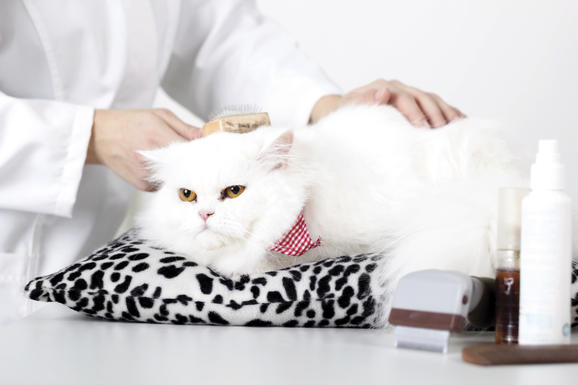One of the reasons why people love cats so much is their aloof demeanor and strong personalities. Cats know what they like, and they often aren’t shy about letting you know it. However, many owners still make the occasional mistake, and sometimes, it can lead to a bigger problem. Here are 7 common issues that cats have with their humans, and tips on how you can fix them.
7. NO HELP WITH GROOMING
Cats take care of most of their own grooming needs, but they can’t handle everything. Long-haired cats need tangles brushed out to prevent mats from forming, and all cats need regular dental cleanings. Older or overweight cats can also struggle to groom themselves effectively due to arthritis or other mobility issues, so keep an eye out for those changing needs.
6. DON’T SHOW LOVE
At the same time, cats do need plenty of affection and interaction. It can be easy to fall into the trap of thinking of them as low-maintenance pets and ignoring them when things get busy, but make sure to carve out a bit of time for playing and cuddling every day. Not only will it keep your cat happy, but it will strengthen your bond.
5. INVADE PERSONAL SPACE BUBBLE
Although cats can be pretty social, even the friendliest felines need to take a break sometimes. Cats tend to prefer this by holing up in a safe space, and it’s important to respect that. Don’t disturb your cat if she’s curled up in a small area or seems uninterested in socializing. If guests or young children are around, make sure they stay out of your cat’s personal space bubble as well.
4. PLAY DRESS-UP
When you scroll through all those cute social media posts featuring cats in various costumes, it can be tempting to try it out with your kitty. But it’s a rare cat that enjoys dressing up. Most feel restrained, uncomfortable, and possibly frightened by the clothing. Besides, costumes just get in the way of your cat’s natural beauty. Leave the dress-up to the humans in the house.
3. CREATE LOUD NOISES
Those big, beautiful ears aren’t just for show. Cats have a very sensitive hearing and find loud noises to be disturbing and unsettling. This applies to shouts or scolds directed at them, but it also includes slamming doors, noisy children, loud music, and arguments between people. For the unavoidable ones, such as a crying baby, be sure that the cat has somewhere quiet to hide.
2. CONVEY NEGATIVE ENERGY
The idea that cats can’t be trained is pure myth, but it does take a gentle hand. Scolding or scaring your cat can hurt your relationship, so try using positive reinforcement for good behavior instead. Gentle redirection or finding ways to make an area less appealing, such as placing double-sided tape on a couch corner where a cat may be scratching, can also help cats learn the rules.
1. OVERLOOK SIGNS OF A PROBLEM
Cats are notoriously good at hiding illness and injury, so don’t worry about overreacting if you suddenly notice that your cat is hiding more, resisting affection, or developing appetite changes. Because cats like to keep their humans guessing, a sudden increase in affection can also be a sign that your cat isn’t feeling well. If you have any worries, call your vet and ask. A routine yearly wellness check is also a good idea.
Related Articles
- 4 Amazing Tips on Getting Your Cat to Be More Affectionate
- How To Stop Your Cat From Biting You
- How To Keep Your Cat Safe
- 5 Foods You Didn’t Know Were Good For Your Cat












